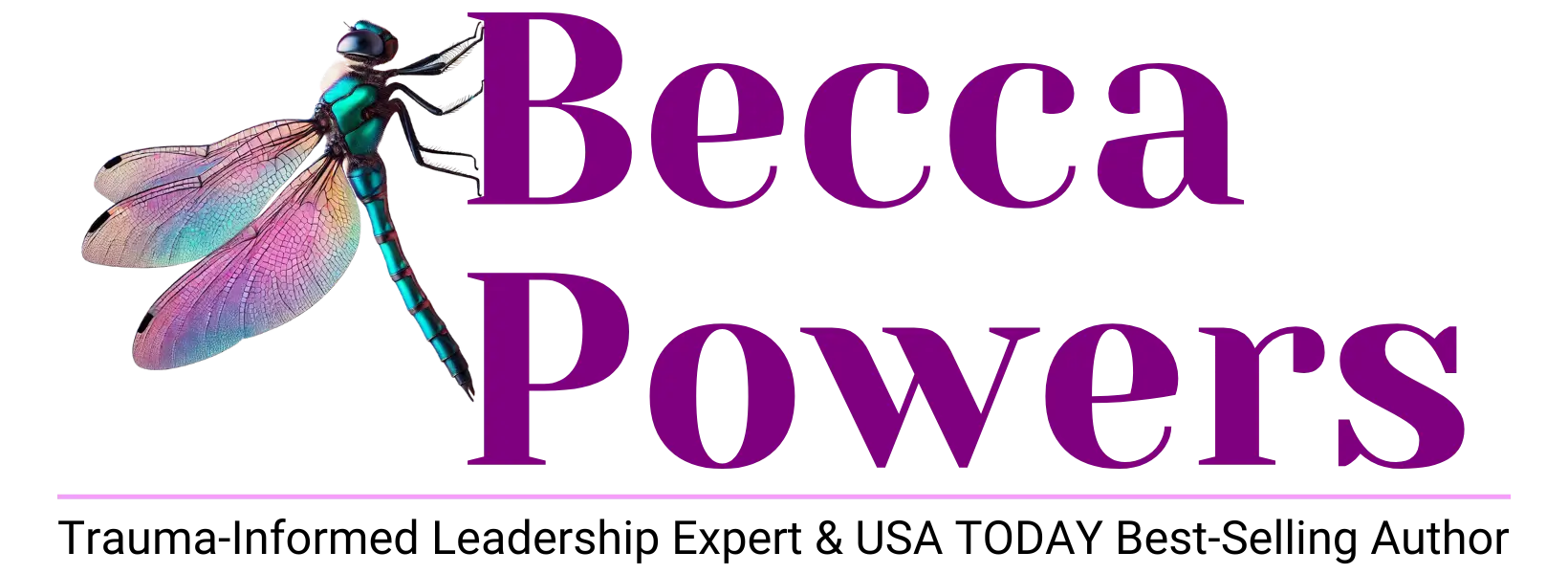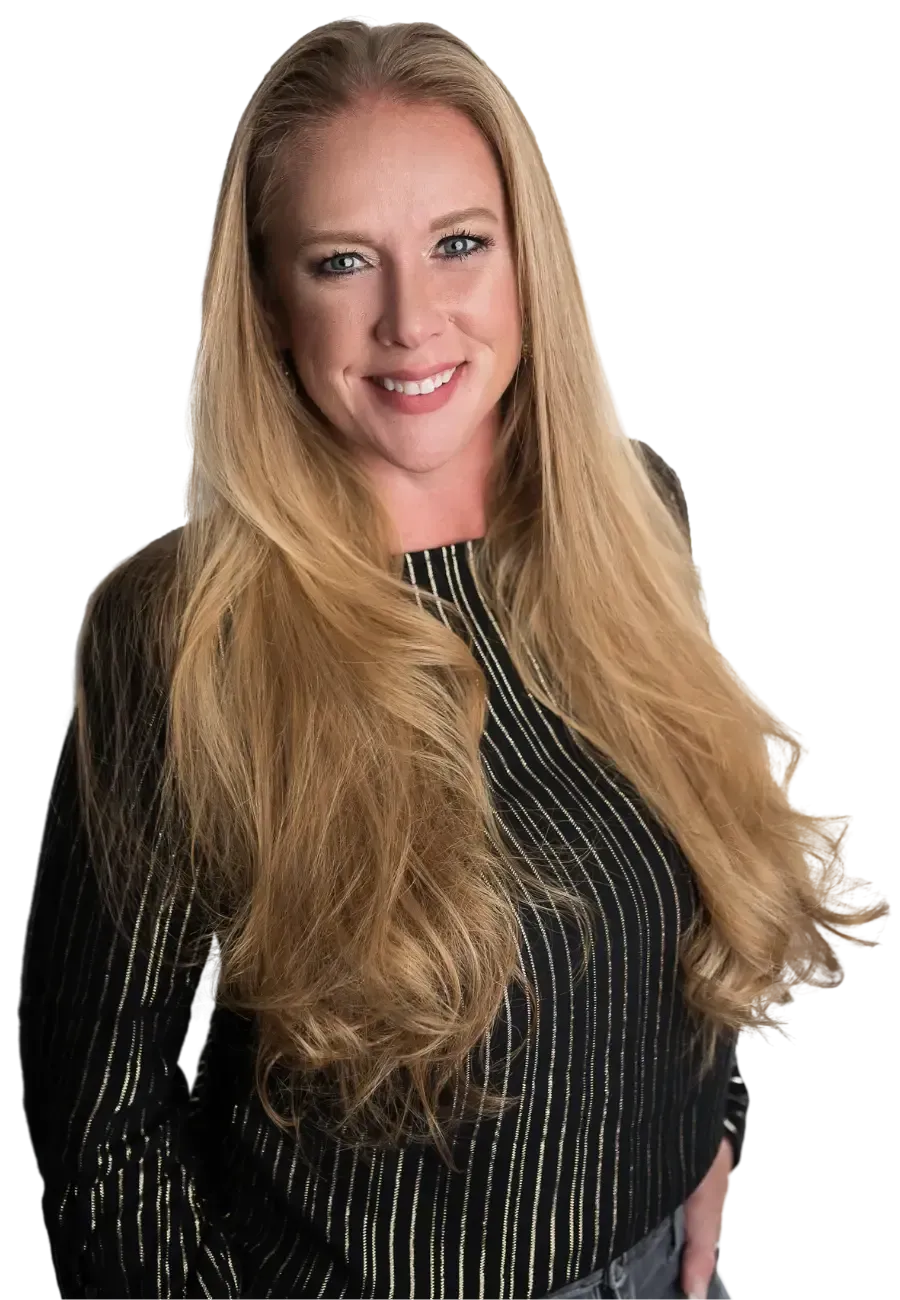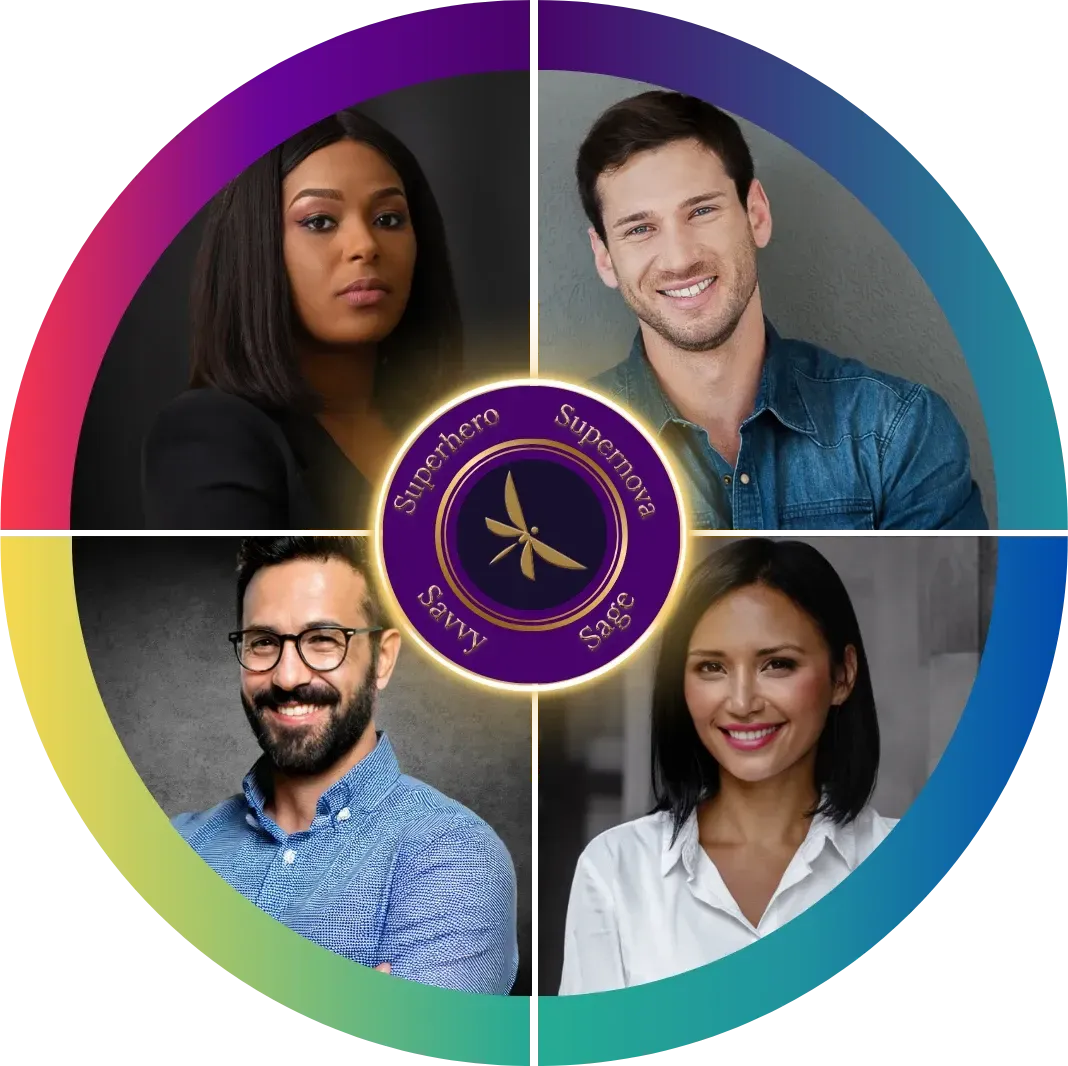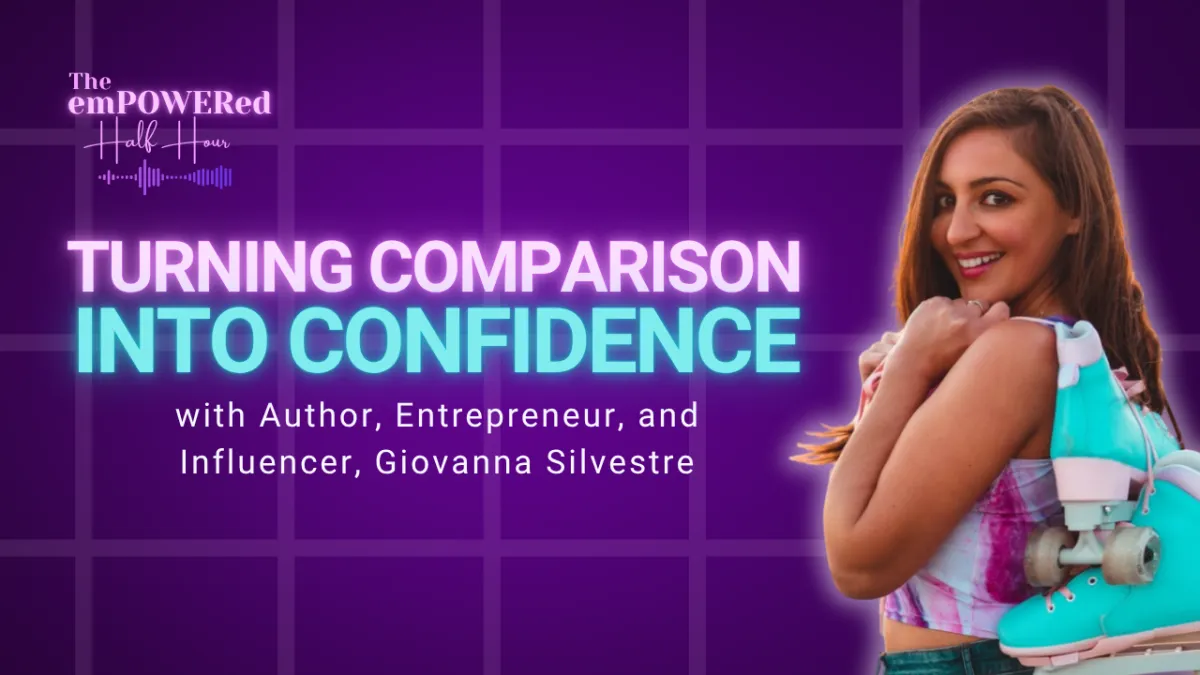
Turning Comparison into Confidence with Author, Entrepreneur, and Influencer, Giovanna Silvestre
How do you stay true to your light when the world keeps pulling you toward comparison?
In this heartfelt episode of The EmPOWERed Half Hour, Becca Powers sits down with author, entrepreneur, and wellness advocate Giovanna Silvestre for a powerful conversation on embracing alignment, turning vulnerability into strength, and transforming comparison into connection. Giovanna opens up about her journey from launching a chakra-inspired yoga clothing line to becoming an author, and how following her truth sometimes invited criticism.
Together, Becca and Giovanna reflect on the pitfalls of comparison, the confidence it takes to ask for guidance instead of competing, and the magic that happens when you let connection replace competition.
Comparison Isn’t Always the Enemy
How shifting your perspective can turn comparison into an empowering tool for growth.
Stay in Your Lane & Shine
The importance of focusing on your own journey rather than competing with others.
The Power of Vulnerability
How admitting where you’re struggling opens the door to deeper connection and transformation.
Balance Over Burnout
Why competition without boundaries robs you of joy, and how to embrace a more holistic approach to life.
Your Story is a Gift
Sharing your experiences—both the wins and the struggles—can inspire and empower others.
Key Moments You Won't Want to Miss:
Giovanna’s personal story of transitioning out of her yoga clothing line and finding her true path.
Becca’s insight on how comparison dims your light and why the world needs you shining.
The empowering reminder that asking for help is a confident move, not a weakness.
How vulnerability turned Giovanna’s challenges into meaningful connections.
Empowering Thoughts to Take With You:
“We’ve had enough people with dim lights out there in the world. We need you shining.” – Becca Powers
“Stay in your lane. What’s meant for you will happen in its time.” – Giovanna Silvestre
“Vulnerability is a bridge to connection.” – Becca Powers
“Comparison doesn’t have to be toxic—you can use it to grow.” – Giovanna Silvestre
About Giovanna
Giovanna Silvestre is the founder of Confused Girl in the City, an activewear brand inspired by healing crystals and featured by outlets like NBC and Forbes. A former Hollywood professional and USC alum, Giovanna’s journey took a profound turn after leaving the entertainment industry and facing a period of depression. This experience sparked her quest for purpose, leading her to build her brand and write her debut book, “Confused Girl: Find Your Peace in the Chaos,” published by Blackstone in 2025.
Written during two years of solo travel, her book blends memoir and guidance to help readers embrace life’s uncertainties as a path to healing and growth. With over 400,000 Instagram followers, Giovanna continues to inspire others through her story of transformation, creativity, and authenticity.
Connect with Giovanna Silvestre
Enter Giovanna’s Book Launch Giveaway at confusedgirlinthecity.com/confused-girl-book-launch-giveaway and discover the stories and insights that will inspire your own journey today!
Power Links
Join Becca in her Facebook Community - The Dragonfly Effect, Where High-Performing Professionals Chase Big Dreams: https://www.facebook.com/share/g/1C4z83krsn/
Purchase Becca’s Book - A Return to Radiance, The POWER Method to Ignite Your Soul and Unleash Your Potential: https://www.beccapowers.com/a-return-to-radiance
Invite Becca to Speak: https://www.beccapowers.com/keynotes
Grab Becca’s Free EBook, The High Performer’s Path, The 8 Forces of Potential for Mindset Mastery: https://www.beccapowers.com/
Follow Becca Powers
🌟 Did you love this episode of The emPOWERed Half Hour Podcast? Sharing your thoughts can make a big impact!
💬 Leaving a review is simple:
Scroll down to the "Ratings & Reviews" section.
Tap "Write a Review" to share your thoughts and let others know what you loved about the show.
Your feedback helps us grow and continue delivering the content you love. Thank you for being part of our empowered community! 💖
We Want to Hear From You!
Which part of Giovanna’s journey resonates with you the most? Is it finding worth within, letting go of comparisons, or trusting the timing of your path?
Share with us. Are you ready to release the pressure to keep up, stay in your lane, and believe that what is meant for you will unfold in its own time?
Becca: Welcome to another episode of The EmPOWERed Half Hour! I have an author here that I am so excited to introduce you to. I’m just meeting her for the first time with you all, but her energy is fabulous, and the book title is great. I think you’re going to love her. Her name is Giovanna Silvestre.
Did I say it right?
Giovanna: Yes.
Becca: Thank you! I always get so nervous about butchering names, and you all know this about me. I was trying very hard to pronounce it correctly, and I’m glad I did. Welcome to The EmPOWERed Half Hour! I’m happy to have you.
Giovanna: Thank you for having me. Happy to be here this morning.
Finding Worth Within: Reclaiming Value Beyond Achievements
Becca: When we were talking in the pre-show, you mentioned you’re an author, influencer, and entrepreneur. You recently released a book called Confused Girl: Find Your Peace in the Chaos. Tell me a little bit about her—I want to know more about your book.
Giovanna: I really wrote it for someone like me when I was going through a depression in my late twenties. I went through a really dark depression in my late twenties, which I’m so grateful for now. At the time, I wasn’t so grateful for it, but now I am because it really gave me the tools I needed to deal with life in a healthier, more productive way.
At that time—this was a while back—I felt there were great self-help books, like Gary Zukav’s The Seat of the Soul and The Alchemist. But there wasn’t anything that felt like it came from a woman who had been through what I was going through, someone I could say, “That’s me.”
The biggest thing I felt then was that I was really alone in what I was going through, and that made it worse. It felt like I was the only one, when really it’s something people go through in life. That dark season can be a good time to reset and think about what you believe, what you value, what success and living a healthy life mean to you.
So I wrote the book for all the girls going through that—to let them know, “You’re not alone. This is how I got through it, and here are some tips.”
What’s really cool about it is that it’s not just self-help and it’s not just memoir—it’s both. It has a strong storyline that even girls who normally only read fiction love. They’ve told me they don’t usually read self-help books, but the story kept them engaged the whole time.
Becca: Did you write it memoir-style, with your story and lessons woven throughout?
Giovanna: Exactly. And thinking about what I would have needed at the time, I added “Confused Girl Recaps” at the end of each chapter. You don’t have to reread the whole chapter—you can just look back at the recap for reminders.
I talk about things we often struggle with as humans, especially as women. For example, I have a whole chapter about comparisons.
Becca: There’s so much in your opening that I could ask 10 questions about! We’ll see where it goes. I want to circle back to comparisons, but first I want to talk about something you mentioned: values.
I think it’s important to know your values and not compromise them. I have a different story but a similar one in that I became depressed because I bypassed every red flag imaginable and powered through something that wasn’t a fit for two years—until I had a collapse.
By the time I collapsed, I was in debt, had disconnected relationships with myself, the universe, my kids, and my husband. I was on the verge of divorce and had developed an autoimmune disease. My life was a hot mess.
I relate to you because whether you’re in your twenties, like you were, or in your thirties, like I was, depression can happen when there’s misalignment with our values. There’s a compromise happening, and I don’t hear many people talk about that. I heard that in your story’s arc and wanted to highlight it for our audience.
Giovanna: I was raised in a Catholic family—not super strict, but it was part of our culture. My father was from Italy and my mom is Irish. I always had a spiritual connection. I remember moments in Catholic school and in church where I felt almost a spiritual experience, like I could feel the Holy Spirit.
I’ve always been sensitive and intuitive, but I was also raised to be ambitious—to go after things and make things happen for myself, to achieve. My father was an immigrant who worked really hard, and everything was about working hard and achieving, almost like proving you deserve to be here and honoring your family by succeeding.
So I felt my whole life was about achieving. Without the achievements, I was nothing. I didn’t have value. Society reinforces that too—you’re only as good as how much money you have in the bank, the house you own, the car you drive, the school you went to. It becomes a rat race, a treadmill that keeps speeding up.
I hit a wall. I had achieved things, and I had more than some people but less than others. I was tired of looking at those with more and feeling awful about myself. If life was just going to be like that, I didn’t want to be here. I thought, “I’m still in my twenties and I already feel done.”
Nothing was ever enough. I realized I either had to give up or figure out a new way to believe about life and my purpose, because the old way wasn’t working anymore. That’s where the real shift began.
Becca: I relate so much to what you’re saying. When I had my breakdown, I was hitting all the societal markers: mid-thirties, kids in middle school, a senior leadership role, married, a house—everything society said I should have. I checked every box and thought, “Gold star for me!”
But inside, I felt confused. I felt disconnected. I thought the only way to prove my worth was to achieve. So many people feel this way but keep it inside. Like you said, we feel alone. We think, “Who am I to complain? I have a roof over my head.” But we’re beautiful souls who deserve abundance, joy, health, and laughter.
I appreciate you being so real because it’s important for people to hear this.
Giovanna: Going back to values—when I was in that depression, I realized I had put my value into everything outside myself: accomplishments, the guy I was dating, the career I had, the car I drove.
But those are all things that can be taken away. I told myself, “I’m a good person. I’m not hurting anyone intentionally. I deserve to feel good about myself. I want to feel like I’m worthy just because I exist. I’m a child of God.”
That became my goal—to feel worthy just because I exist. Everything I do after that will be more meaningful. I deserve to feel joy. I deserve to feel gratitude.
I don’t think I ever really knew what gratitude felt like back then. Now I feel it all the time. It’s amazing. Even when times are tough, my state of being is higher than it was back then.
When I talk about it now and remember the self-torture I was in, I’m so grateful. I call it my “dark years.” Every morning when my feet hit the floor, I say, “Thank you.”
Comparison to Connection: Reclaiming Worthiness and Peace
Becca: Like I get to do this again. I get to choose to look at life from a lens of appreciation versus accomplishment just for the sake of our conversation. When you get that paradigm shift that you’re talking about—when it happens in your head—you really are grateful, because you’re like, oh my God, I remember what this torturous brain felt like.
And you feel—I don’t know if you felt like this, but it kind of sounds like you did—I felt trapped in my own body. I mean, when I hit the bath, I hit, girl. I hit the bathroom floor like I lost it. One day I just had four bad days in a row, and the listeners have heard my story a whole bunch, but I had like four bad days in a row.
I didn’t appreciate or like how I greeted my children when I got home because I told them I wanted to put my effing purse down and have five minutes to myself before I dealt with them. And it was just one of those days. Every parent has them. But it was one of those days that I was almost out of body. I saw it—I saw their reactions—and I could still cry. I mean, this was almost 10 years ago, and I could still cry because I was that wound up in myself that I was no longer recognizing the emotions of the people I love the most.
And then you get—like I’m tearing up right now—so that night I go and look at myself in the mirror and I didn’t recognize myself anymore. Who I was as a person, I couldn’t recognize. And that sent me to an emotional collapse on the floor.
And so this paradigm shift that we’re talking about is so important because when you can start to rebuild yourself from your worthiness, as you’re saying, it’s important. I want the listeners to really tune into what we’re talking about. When you can shift your perspective on yourself—that you’re worthy just because you’re alive, just because you’re human, and not because you have to accomplish something—it’s a game changer. And you’re damn straight. I’m grateful for that shift every freaking day.
Giovanna: Yeah, I…
Becca: I had to rant.
Giovanna: Had to rant because I was like, yes. No, it’s so true. And I think, you know, especially my generation is doing this a bit too. I think the younger generation not so much, but we’ve been taught that more is more.
We need to be able to do everything. We need to be the career person, the career woman. We need to have the children, we need to be a perfect mom. And that also means entering our kids into all of these things and making sure that they have this and that and are doing this and that.
And it’s like, where is the peace in all of this? Where is the chance to even reflect on yourself? I mean, you’re literally just running yourself ragged. Not to mention, as women, we have hormonal cycles that make us really tired. Some days I’m like, I can’t really leave my couch right now, and I probably shouldn’t because I’m gonna ruin somebody’s day with my attitude.
It’s just a lot. We’re trying to do so much. So I think any way you can, within your life, where you can go “less is more,” go with that. Keep telling yourself, less is more. Because the peace is really the goal.
If we’re here on earth, we want to be able to enjoy it. We want to be at our kids’ soccer game and really be present there—not thinking about work or what you’ve got to do next. You want to be in the present moment as much as you possibly can, because that’s where the real living is. That’s where you become alive.
Becca: See, I knew I was gonna like you when I first met you. We’re gonna have a good conversation. But you’re saying all these words that I love and believe because I’ve experienced them in my own transformation too.
But one thing I think I want to go back to: you had said, “Let’s talk about values first,” and how what we value can either really elevate us or really spin us out. But then you started talking about comparison, and I think that’s another really healthy conversation for the listeners to hear your perspective on.
I mean, there’s the saying that comparison is the thief of joy. I’m really curious to see what your two cents are on comparison since you brought it up.
Giovanna: Well, you know, there was this girl in college that I would totally… just her presence would make me feel insecure. She was gorgeous, had a gorgeous boyfriend, was a Song Girl at USC, looked super wealthy, and had everything going on.
And I thought, what? I cannot compete with that. I’m a competitive person; I was raised to be competitive. And this girl didn’t have a flaw, at least not one that I could see.
Years later—now I’m in my thirties, starting my activewear line—I’m going through Instagram finding yogis who might want to collaborate. I find a girl who has a picture with this girl I was so jealous of. I read the caption, and it said, “I miss you so much. I still can’t believe you’re gone.”
I was like, oh my gosh. The girl passed away in her late twenties of cancer.
Becca: Oh my God.
Giovanna: That put things in perspective. Here I am alive and healthy, and I felt so guilty for comparing myself to her. I was so happy that she had those amazing things in her life and looked happy.
That really hit me. I’ve always struggled with comparisons, being a competitive person, but that experience made me realize you can’t do this anymore. You don’t know the life path of anyone. You could be at your lowest low while someone’s at their highest high—and then it shifts.
I really understood that we all have our own life path. I believe there’s a destiny and purpose for all of us. If that’s the case, how can we really compare ourselves?
Also, nobody looks like me. Nobody talks like me. Nobody has my unique experiences. Same goes for every other person on this planet. It’s so unfair.
It’s like trying to compare the beauty of the Grand Canyon to the Pacific Ocean and asking, “Which is better?” I don’t know—some people like the Grand Canyon, some people like the Pacific Ocean. But they’re both beautiful in their own way.
Becca: That’s true. And at the end of the day, comparison can really take us off our journey. Someone might like the ocean better than the canyons, but someone else will like the canyons better than the ocean.
I love that you shared about your activewear line. I don’t know if you know this, but I used to make yoga t-shirts—yoga affirmation shirts.
Giovanna: Love that.
Becca: I named it Chakra Full Expressions. I’m a yogi too, and I made chakra-based yoga clothes with “I Am” affirmations. I didn’t end up staying in the yoga clothing line, but I’m so happy you are—go off!
What I want to say as a lesson for the listeners is that as you pursue more of your truth and what’s in alignment for you, some people will think it’s beautiful and some people will have something to say about it.
I hope you can gather from this conversation that comparing yourself to the comments of other people or to somebody else dims your own light. We’ve had enough people with dimmed lights out there in the world. We need you shining.
Giovanna: No, it really is. And another thing I noticed about comparisons is a lot of people tend to do it their entire lives, and then they never truly get happy with themselves. It becomes this dark rabbit hole.
I believe you can look at someone who’s doing something well and ask them for tips. That’s a confident thing to do. Or even if you love the way someone does their makeup—ask them to show you!
You can use comparison in a positive way. Competition can be good because it pushes you, but you don’t want your whole life to be competitive. You don’t want to be competitive with your husband or wife. That’s too much; there’s no balance in that.
Becca: Absolutely. I love that you turned the comparison message into something positive too. I’ve learned it can invite connection.
Some of my best mentors have become really good friends because I reached out and said, “You’re amazing at that—can you help me?” Then you laugh, connect, and discover you have your own unique light to share.
Not only do they help you, but they learn something about you too, and maybe you inspire them in return. I love when the connection door opens because it invites so much magic in.
Owning Your Purpose and Empowering Others
Giovanna: Yeah, and I think one gift God gave me was I’m pretty comfortable with being vulnerable. I can admit that I used to do the comparison game a lot, and even now with the book, I had to catch myself and stop because again, I’m competitive. I want to do well, and I want my book to reach as many people as it possibly can.
I do know it’s so helpful, but then I was getting competitive about it—comparing myself to what other people’s books are doing. And then I just go, “Nope, stop.” I was like, “Stay in your lane. Stay in your lane. I know I was meant to do this. What’s going to happen with it is going to happen with it. You do you, girl, and just wish people well.” We just have to stop ourselves sometimes.
Becca: So true. And I just looked at the time—we’re 26 minutes in, which means we have four minutes left, because half an hour goes by so fast. I still have five questions. All right, let’s go back to the book.
What I want to ask is two questions in one: you can really take your book and share why you’re passionate about it, and also how it can empower—since this is The EmPOWERed Half Hour. I always like to share how your work can empower someone else. So let’s talk real fast: why are you passionate about the book, and how can it empower someone’s life?
Giovanna: I really do feel like why I’m here is this book. I really do, with my entire being. And I think more books are to come too. I believe this is the gift I’m supposed to give to the world.
I said I am vulnerable, and maybe I’ll admit things that other people are too scared to.
Becca: So good for storytelling, because the vulnerability helps people transform. I really applaud you for that—it’s awesome.
Giovanna: Yeah, and it’s interesting because I had a podcast with this one amazing woman, and she does this soul decoding thing where she has a chart and takes your birthday and the time you’re born. She said that my purpose here is to tell stories in a very poetic way that helps people feel seen—very human.
And I thought, oh my gosh, that’s what I’m doing. That’s what I’m doing. So yeah, that’s what really empowers me.
Becca: That’s awesome. That was the passion and empowerment, but let’s flip it to the listener. If they were to follow you, read your book, invest in your yoga activewear—if they were to be in your aura—share how your work would empower them. Or you can share an empowering message, whichever way you want to go.
Giovanna: It’s interesting—now I’m getting a lot of reviews coming in from people who’ve read my book. The big thing everyone’s saying is that they feel safe. I have to go from what the readers are telling me versus what I think my goal was.
This one girl was so cute—she said, “There is nothing in this book that’s missing. It touches on everything I needed.” I thought that was great because I do—I talk about shame, guilt, comparisons, relationships—romantic relationships, friendships. I talk about intuition, destiny as a moving target, how to shift and change with the times—just all of it.
I really tried to cover everything. I’m hearing things like, “This is the book I’ll always come back to.” They love the recaps at the end of each chapter. People feel seen and touched emotionally. Honestly, that’s everything I would want. I just wanted to help other people with it.
Becca: That’s so cool, and I’m so glad to hear it’s well-rounded too because I like approaching life holistically with the whole person. It sounds like that’s how you approached your book.
So I’m going to invite the listeners to get a copy of your book. Go ahead and share where they can find your book and how they can follow you.
Giovanna: You can find my book on Amazon in audio, digital, and hardcover. Also on barnesandnoble.com, target.com, and on my website—you can get a signed hardcover copy at confusedgirlinthecity.com.
And follow me on Instagram at @confusedgirlalexis.
Becca: That’s awesome. I’m going to be following you too. Well, we’re at the 30-minute mark. Thank you so much for coming on and being a guest. You can see my cheeks are red, I’m smiling—it was a great interview. I just appreciate you and your energy so much.
Giovanna: Thank you so much. I appreciate you and what you’re doing. Thank you.
